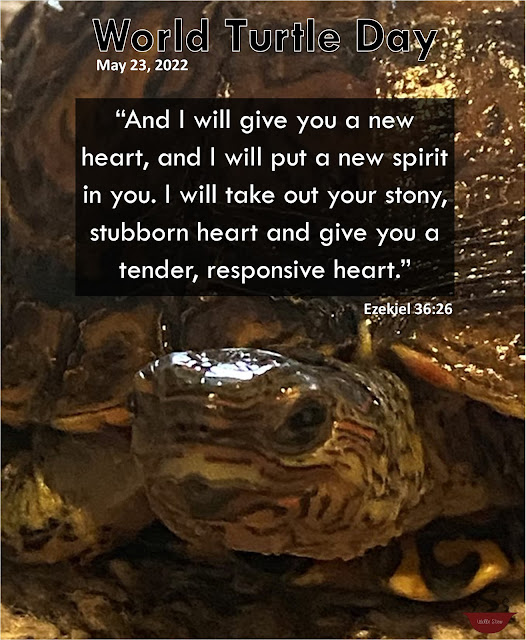Lent Challenge
Lent is coming up; it’s right around the corner (February 26th). Have you decided what you’re giving up for Lent? Should you even give something up for
Lent? Normally, I don’t. The first time I even honored Lent was a few
years ago as a challenge issued by my pastor.
His explanation of Lent was that we sacrifice something to reflect on
Jesus’ sacrifice for us.
It wasn’t easy for me to choose what to give up that Lent, but
this Lent the choice presented itself to me.
Quite honestly, I had no intention of participating until it was thrust
into my lap. And, as a fellow stone in the wall,
I intend to do the same to you.
Today, I want to challenge you to give up something for Lent
that will bring good to others. God
wants us to be good to others.
- Do to others as you would have them do to you. Luke 6:31
- Love your enemies and pray for those who persecute you. Matthew 5:45
- Be devoted to one another in love. Honor one another above yourselves. Romans 12:10
- My command is this: Love each other as I have loved you. John 15:12
- “The King will reply, ‘Truly I tell you, whatever you did for one of the least of these brothers and sisters of mine, you did for me.’" Matthew 25:40
Why is this hard for us? Why does the Bible have verse after verse
about being kind to one another? I have
some ideas. Let’s have some fun. Take a moment. Jot down a few reasons why you think we have
a difficult time being GOOD to one another.
Then, come back when you’re ready to compare notes. If yours are different than mine, I would
love to hear about them. Leave me a
comment, drop me an email, send me a message on social media. Okay, seriously, go on. Get that piece of paper and pencil. Why do we have a hard time being GOOD to each
other? Write down your thoughts.
Let’s compare. Here
are a few reasons why I think we have a hard time being GOOD to each other:
- We're selfish. We make decisions based solely on personal gain. We spend a lot of time managing the way others perceive us so run out of time (and thoughtfulness) for others. We think highly of ourselves, pride wins out over humility, and we fail to see varying perspectives.
- We judge others and the verdict is: they don't deserve our good. They are mean. They wouldn't appreciate it anyway. They chose their situation. They are never good to me. They really hurt me.
So, did you come up with other reasons why we have a hard time being good to each other? If so, please consider leaving a comment.
Some of these validations, honestly, are really good
ones. I came up with the list, so obviously
I’ve used some of them myself. Likely
even several times a day. So, why should
we even try to do GOOD for others?
Because it’s the right thing. It’s the golden rule. It’s living life outwardly instead of
inwardly. It’s being a good human. It’s about living a life bigger than
yourself. And, from a Christian
standpoint, because God asks us to:
As I read this verse, two questions arise that I attempt to answer here:
- “To whom is good due?” My answer to this: everyone. Jesus showed goodness to people who “didn’t deserve it,” by the social standards of His time. Indeed, we’re urged to even show good to those who hate us (Romans 12:14). In short, good is due to everyone.
- “When is it in my power to act?” This question requires more introspection and is not as clear-cut as the first. We must ask ourselves:
- Am I capable of performing this action?
- Will it cause harm to me or someone else?
- Is it spiritually sound?
- If you still are having difficulty answering this question, may I offer up my Two-Step Decision-Making post? Ultimately, remember, God’s got this. He’s in control. He’s directing your path and your walls are continually before Him, regardless of the decision you make here.
As you’re considering what to give up for Lent, think of it
in the framework of the verse above.
Will it bring good to others? Is
it in my power to do it?
You’re with me on this.
You’re ready to surrender some part of you that’s withholding good from
others. But how do you choose what that
part of you is? My guess: you already
know. You’re thinking of it right now. You know exactly what part of you needs
surrendering so others can benefit. Don’t
worry though, I’m not asking you to choose it right now. If you have something whispering to you
though, hold on to it. Maybe even make
note of it. Because first, I’m going to
walk you through what I am choosing to give up for Lent.
Honestly, it was not my original idea. It came to me unexpectedly, as many of the
best ideas do. It was in an email from Proverbs 31 Ministries in their weekly devotional
round-up. Confession time: I do not
read every devotional. I probably only read 10% of them. But I read this one (link),
and it punched me in the gut. Immediately,
I knew I had to take action.
In the devotional, “When You Need a Recall Button for
Your Mouth,” Karen Ehman challenges you to give up speaking harshly about
others for Lent.
This, friends, has always been my weakness. Maybe you have one too. It’s that trait that keeps popping up whenever
there’s a sermon or discussion on refinement.
My answer often is talking badly about others.
See, what I say comes from what’s in my heart (Luke 6:45).
And that means, whether I want to believe it or not, there’s darkness in
my heart when it comes to others. I want
to be free of it. I want to be cleansed of
it. And I’ve tried. Over and over again. It’s been my resolution so many times. But I keep justifying that it’s really okay:
- I’m just expressing my frustrations.
- I’m venting.
- Everybody does it.
- I just need to get it off my chest.
- People around me are speaking badly about others and I just got caught up in the flow.
But, when I’m honest, I recognize my words are painful. They cause harm, even when not directly heard
by the subject. This is what I really
want from my words:
- I want my words to be like honey (Proverbs 16:24).
- I want to edify others. (Ephesians 4:29)
- I want to speak life. (Proverbs 15:4)
How do I start? It
came to me at breakfast time this morning.
While reading “How Deep is the Deep,” from Indescribable by Louie
Giglio with my nephew, it hit me (p. 17). You see, the devotional connected God’s
knowledge of the depths of the oceans to His knowledge of the depths of our
thoughts. He knows what we’re going to
think before we even think it (Psalm 139:1-2).
Then, Giglio suggests that whenever we think a bad thought we:
- Capture any bad thoughts that wander in.
- Fill [our] minds with thoughts of [God] instead.
These reflective words, spoken by my nephew, remain in my
mind, “That’s a good idea. I think I’ll
do that.”
Putting my Lent goal in the framework of the Proverbs 3:27 verse,
I know speaking life-giving words:
- Will bring good to whom it is due.
- Is in my power to do it.
So, I’m going to do it! Altering the framework given above to my
unique situation, my battle plan is as follows:
When I think (or say) a negative thought about someone, I
will:
- Hold it captive.
- Pray.
- Turn it into a positive, truthful thought.
- Speak words of life and truth to that person.
Is it going to be difficult? Yes! Am I going to need God power? Absolutely!
Will there be times I fail?
Without a doubt. But I’ll keep trying
anyway! It’s my hope that by continuing
this challenge throughout Lent, it becomes habitual to speak life-giving words
on a regular basis, that it becomes my first thought instead of an afterthought.
I’m giving up negative words for Lent! Won’t you consider unleashing good on others
by choosing to withhold a part of yourself this Lent season? We’re holding on to a winning formula:
Let’s put it into action. If you’re in it with me:
1.) Thank you for joining me!
2.) Choose something to withhold that is unique to you. Something that:
a. Will bring good to others.
b. Is within your power to do.
3.) Write out an action plan.
a. When (chosen behavior) happens, I will:
b. Seek to find a way to bring it to good for another person.
4.) Know that I am praying for you.
5.) And, remember, with God, all things are possible. (Matthew 19:26)
Here’s to a forty-day journey of actively working to bring good to others by withholding something from ourselves.
With Love and Prayers
from the Kitchen,
 |
Interested in more faith-related blogs? Then you're looking for Faith Food. At Faith Food, you'll find links to all our faith-related blogs and a short description of each.
Resources
- Bible Hub https://biblehub.com/
- Ehman, Karen. "When You Need a Recall Button for Your Mouth." Proverbs 31 Ministries, Feb. 2020, https://www.proverbs31.org/read/devotions/full-post/2020/02/10/when-you-need-a-recall-button-for-your-mouth
- Giglio, Louie, et al. Indescribable: 100 Devotions for Kids about God and Science. Passion Publishing/Tommy Nelson, a Division of Thomas Nelson Publishers, 2017.








Comments
Post a Comment
Thank you for adding your flavor to the stew.